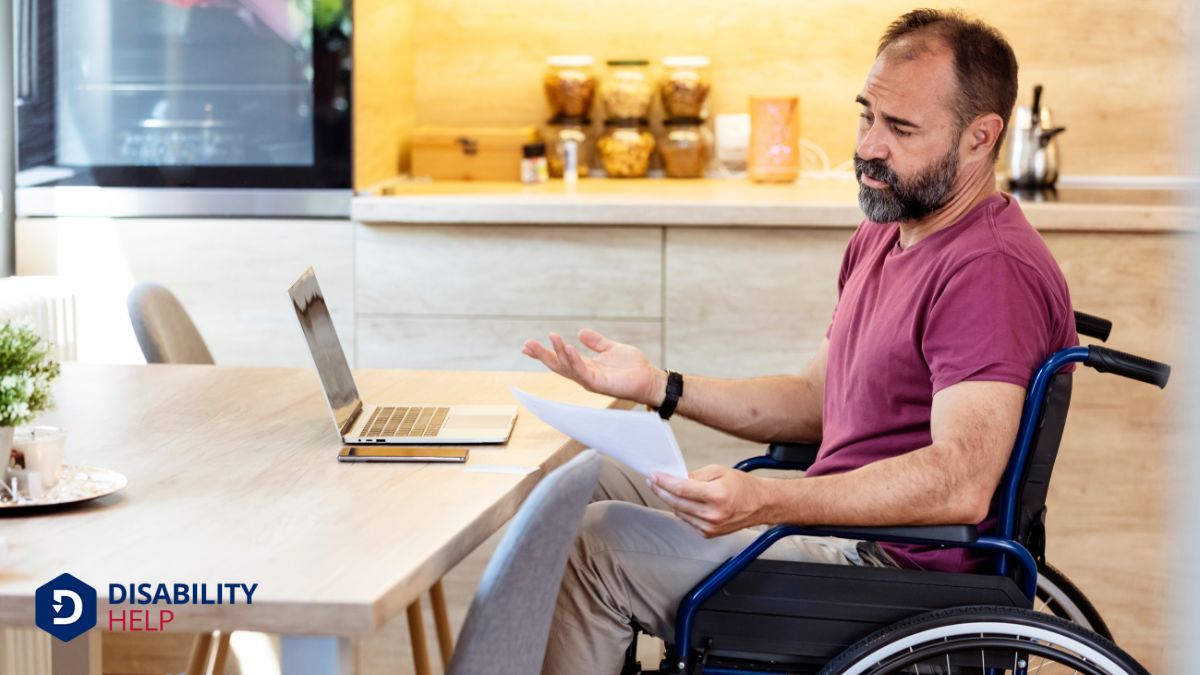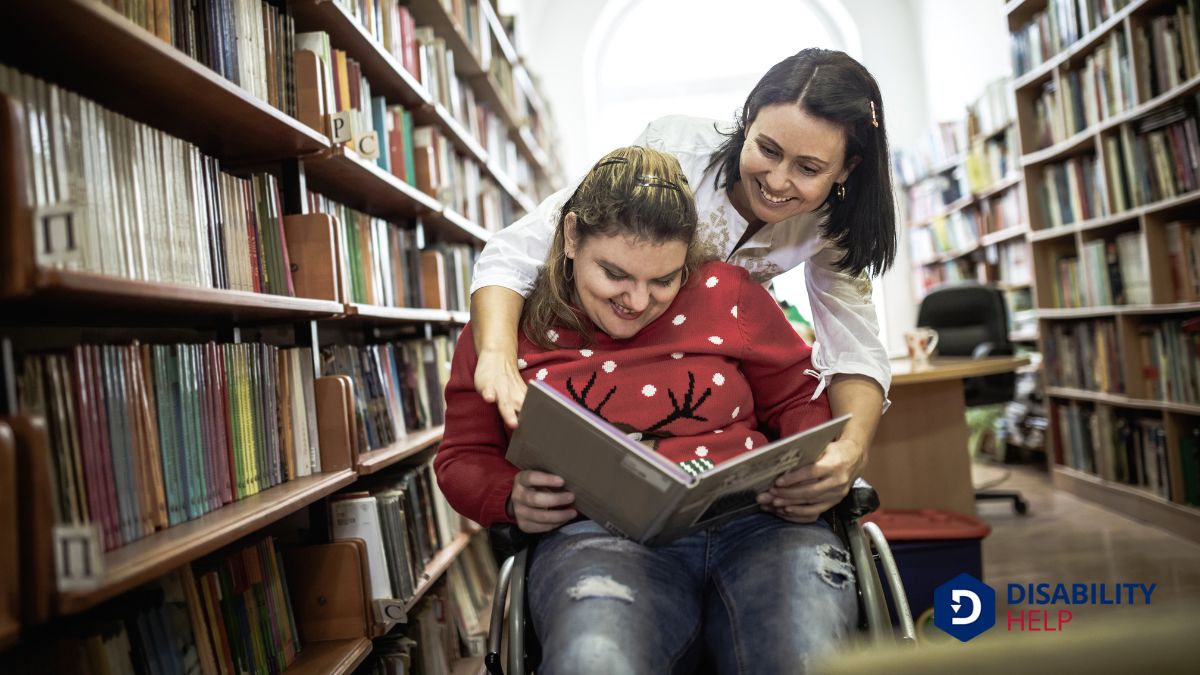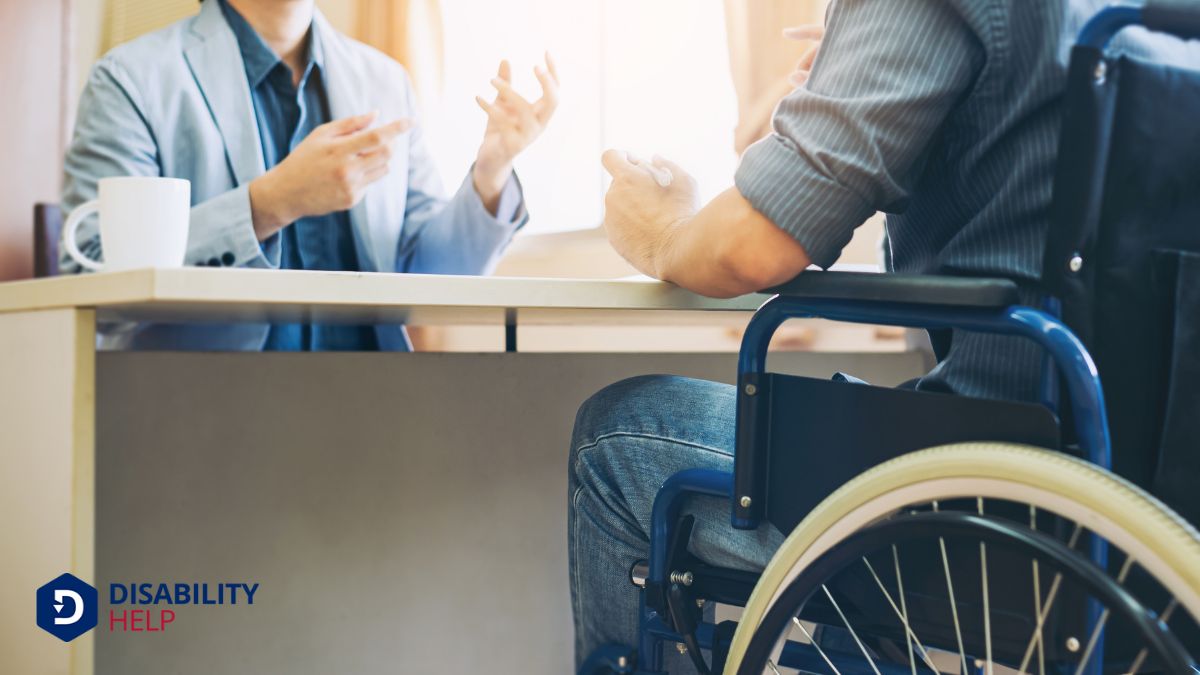When we think about government aid for disabled individuals, it's essential to understand why these programs hold such significance. They're not just about financial support; they encompass healthcare coverage, accessibilityThe design of products, devices, services, or environments to be usable by people with disabilities.... improvements, and educational opportunities that might otherwise be out of reach. Imagine the difference in someone's life when they can access assistive devices or receive employment assistance that helps them lead a more independent and fulfilling life. But what happens when these resources aren't available, and how does that impact not just the individual but our society as a whole?
Key Takeaways
- Government aid provides financial support for accessibility modifications and assistive devices, reducing the financial burden.
- Programs like MedicaidA U.S. government program that provides health coverage to eligible low-income individuals, includin... and MedicareA U.S. federal health insurance program for people aged 65 and older, and for some younger people wi... ensure comprehensive healthcare coverage, minimizing medical expenses.
- Grants for home modifications enhance mobility, safety, and independence within living environments.
- Educational grants and scholarships promote inclusive learning and access to higher education.
- Employment assistance programs offer vocational training, job recommendations, and support for workplace accommodationsModifications or adjustments in healthcare settings to support patients with disabilities..
Financial Support

When it comes to financial support for disabled individuals, government aid programs like Social Security Disability Insurance (SSDI)A U.S. government program that provides financial assistance to individuals who are unable to work d... and Supplemental Security Income (SSI) are vital. These programs offer essential financial assistance that can make a significant difference in our lives. Through cash benefits, SSDI and SSI provide monthly payments that help cover everyday expenses, allowing us to focus on our health and well-being rather than worrying about financial instability.
Meeting the medical and financial criteria for these programs ensures that those of us who truly need help receive it. By offsetting the additional costs associated with living with a disability, such as accessibility modifications and assistive devices, these cash benefits provide a safety net that can enhance our quality of life.
In addition to financial assistance, these programs also offer medical coverage, which is crucial for managing ongoing health needs. This support can offer a sense of stability and security, knowing that we've resources to fall back on. Seeking government aid isn't just about receiving money; it's about gaining the peace of mind that comes from knowing we're supported in our journey toward a better life.
Healthcare Coverage
When it comes to healthcare coverage, government aid programs like Medicaid and Medicare are essential for disabled individuals.
Let's also consider VA Healthcare for disabled veterans and pharmaceutical assistance programs that help with medication costs.
These options guarantee that those with disabilities can access the medical services and treatments they need without financial strain.
Medicaid and Medicare Benefits
Exploring the complex landscape of healthcare coverage, Medicaid and Medicare stand out as essential lifelines for disabled individuals. These programs are designed to guarantee that those with disabilities have access to necessary medical services without facing overwhelming financial barriers.
Medicaid, specifically, caters to low-income families, the elderly, and people with disabilities, offering inclusive healthcare coverage that includes doctor visits, hospital stays, and prescription drugs.
Medicare serves individuals over 65, those under 65 with a disability, and those with end-stage kidney disease. By providing access to essential healthcare, Medicare helps maintain the health and well-being of its beneficiaries. Both programs greatly reduce the financial burdens associated with healthcare costs, making a notable difference in the lives of disabled individuals and their families.
Key benefits of Medicaid and Medicare include:
- Inclusive healthcare coverage encompasses a wide range of medical services and treatments.
- Substantial reduction in out-of-pocket healthcare expenses.
- Access to preventive care aids in the early detection and management of health issues.
- Availability of prescription drug coverage, ensuring necessary medications are accessible.
- Support for long-term care needs can be crucial for individuals with severe disabilities.
VA Healthcare Programs
For those who've served our country, VA Healthcare programs offer a thorough safety net, guaranteeing that veterans with disabilities receive the medical care they need. These programs provide extensive healthcare coverage for military personnel with honorable discharge. By enrolling in VA Healthcare programs, disabled veterans gain access to a wide array of medical services and treatments designed to address their unique health challenges.
One of the key strengths of VA Healthcare programs is their focus on the specific needs of disabled veterans. From physical therapy to mental health support, these programs offer specialized care tailored to the individual. This ensures that veterans receive targeted and effective treatments, aiding them in living healthier, more fulfilling lives.
Moreover, VA Healthcare programs aim to deliver the necessary medical attention and assistance that veterans deserve. Knowing that they've a dedicated support system can greatly alleviate the burden on veterans and their families. These programs aren't just about addressing immediate health concerns but also about providing ongoing support and care.
Pharmaceutical Assistance Options
While VA Healthcare programs offer extensive medical services for disabled veterans, many individuals with disabilities face substantial challenges in affording their prescribed medications. Pharmaceutical assistance programs can be a lifeline, providing medication savings and sometimes even free drugs to those managing chronic conditions. These programs aim to alleviate the financial burden that often comes with purchasing necessary medications.
Eligibility for pharmaceutical assistance typically depends on income levels and specific medical needs. It's essential to gather any required documentation, such as proof of disability or medical necessity, to streamline the application process. By accessing these programs, we can greatly enhance our quality of life and make sure we receive the medications we need.
Here are some key aspects to take into account:
- Income-based eligibility: Many programs evaluate financial need to determine qualification.
- Documentation required: Proof of disability or medical necessity may be necessary.
- Medication savings: These programs can reduce or even eliminate medication costs.
- Quality of life: Affordable access to necessary drugs can significantly improve well-being.
- Application process: Understanding the requirements can assist in successfully applying.
Accessibility Improvements
When we talk about accessibility improvements, government aid can provide financial support for essential modifications like ramps or accessible bathrooms. These grants also cover assistive technology and home modifications, ensuring everyone has equal accessThe principle that all individuals, including those with disabilities, should have equal opportunity... and opportunities. By seeking this aid, we can comply with the ADA and create more inclusive environments.
Financial Support Available
Government aid for disabled individuals offers essential financial support for accessibility improvements, enabling better integration and independence. This financial assistance can make a significant difference in enhancing everyday living conditions. Whether it's through grants for disabled individuals or funding for organizations and businesses, government aid guarantees that necessary modifications can be made.
Financial support covers a range of accessibility improvements, from installing ramps and widening doorways to incorporating assistive technology. By seeking out these grants and financial aid, we can guarantee that all individuals, regardless of their disabilities, have equal access and opportunities.
Here are some key ways government aid helps improve accessibility:
- Home Modifications: Funding for installing ramps, widening doorways, and other structural changes.
- Website Accessibility: Grants to enhance digital inclusivity, ensuring websites are accessible to all.
- Communication Tools: Financial support for tools that improve communication, ensuring everyone is heard.
- Organizational Funding: Assistance for businesses and organizations to make their spaces more accessible.
- Assistive Technology: Coverage for technology that aids in daily living and mobility.
Assistive Technology Coverage
Assistive technology coverage is a crucial aspect of accessibility improvements for disabled individuals. Government aid can make costly assistive technology more affordable, guaranteeing that people with disabilities have the tools they need to navigate daily life. Devices like screen readers, mobility aidsDevices designed to help individuals move around more easily, such as canes, walkers, or wheelchairs..., and communication tools are essential for enhancing independence and quality of life.
Grants specifically for assistive technology can greatly reduce financial barriers. These grants help cover the costs of critical devices, allowing individuals to participate more fully in their homes, workplaces, and public spaces.
By promoting equal access through these technologies, government programs aim to foster an inclusive society where everyone has the opportunity to thrive.
We should seek government aid for assistive technology because it opens doors to greater inclusionThe practice of creating environments in which any individual or group can be and feel welcomed, res... and participation. Accessibility improvements funded by such aid can transform lives, providing the support needed to engage in various aspects of life.
It's not just about making life easier; it's about empowering individuals to realize their full potential. By leveraging government resources, we can guarantee that assistive technology is available to those who need it most, creating a more equitable and accessible world for all.
Home Modifications Grants
Building on the importance of assistive technology, home modification grants offer another vital form of support for individuals with disabilities. These grants provide financial assistance for accessibility improvements in our homes, such as installing wheelchair ramps or modifying bathrooms. By making these essential changes, we can promote equal access and independence, enhancing the quality of life for those with disabilities.
Home modification grants help cover the costs of both assistive technology and necessary structural changes. They're available through various sources, including government programs, non-profits, and private foundations. By tapping into these resources, we can make our homes safer and more inclusive.
Here are some key benefits of home modification grants:
- Increased Mobility: Installing ramps and stairlifts helps individuals move freely within their homes.
- Enhanced Safety: Bathroom modifications, like grab barsBars installed in bathrooms or other areas to provide support and prevent falls for those with mobil... and non-slip flooring, reduce the risk of falls.
- Greater Independence: Customizing kitchens and other living spaces allows for easier daily activities.
- Improved Quality of Life: Accessible homes contribute to overall well-being and comfort.
- Community Integration: These modifications help individuals stay in their homes and communities longer.
Educational Opportunities

Access to education is crucial for personal and professional development, and for individuals with disabilities, government assistance can open many opportunities. Educational grants and scholarships specifically designed for us can help reduce the financial burden and make higher education more reachable. Programs like Pell Grants and Work-Study offer vital financial aid, enabling us to concentrate on our studies rather than our finances.
Vocational RehabilitationServices that help individuals with disabilities prepare for, obtain, and maintain employment. agencies are indispensable resources. They don't just offer financial support; they also provide guidance and tools to help us start on educational journeys tailored to our needs and aspirations. These agencies work to guarantee that we have the skills and knowledge necessary to thrive in our chosen fields.
On college campuses, Disability Resource Centers play a crucial role in our educational experience. They provide accommodations and support, guaranteeing that our unique needs are addressed. From accessible classroom materials to assistive technologies, these centers work diligently to create an inclusive learning environment.
Employment Assistance
While educational opportunities lay the foundation for our future, finding and maintaining employment is equally significant for achieving financial independence and personal fulfillment. Employment support programs like the AbilityOne programA U.S. federal initiative that provides employment opportunities for people who are blind or have si... and the Ticket to Work ProgramA U.S. Social Security Administration program that provides free employment services to help individ... are designed to help us navigate the job market. These programs offer job recommendations, vocational education, and accommodations, making it simpler for individuals with disabilities to secure and retain meaningful employment.
Vocational rehabilitationThe process of helping individuals with disabilities achieve and maintain their optimal physical, se... services are another important resource, providing assistance through personalized plans that can include career guidance, job search support, and skills training.
The Job Accommodation Network (JAN)A U.S. service that provides free, expert, and confidential guidance on workplace accommodations and... is an invaluable tool, offering advice on workplace adjustments to guarantee we can carry out our roles effectively and comfortably.
Work Incentive Programs provide additional assistance by offering special considerations for those of us receiving Social Security or Supplemental Security Income (SSI). These programs enable us to pursue job opportunities without losing our essential benefits.
To summarize, government aid in the form of employment support programs is essential for empowering individuals with disabilities to excel in the workforce.
- Job recommendations for suitable positions
- Vocational education and skill development
- Personalized vocational rehabilitation services
- Advice from the Job AccommodationAdjustments or modifications provided to individuals with disabilities to ensure equal access and pa... Network (JAN)
- Special Considerations from Work Incentive Programs
Housing Assistance
Securing stable, accessible housing is a crucial component of living independently for individuals with disabilities. Government aid can be a lifeline, offering various housing assistance programs that cater to specific needs.
For example, VA housing grants are available to disabled veterans, helping them build or modify homes to suit their unique requirements. These grants guarantee that veterans can live comfortably and safely in spaces designed with their disabilities in mind.
Furthermore, federal vouchers provide substantial support by covering a portion of housing costs, including mortgage payments, making homeownership more attainable for individuals with disabilities. This assistance can alleviate significant financial burdens and contribute to long-term housing stability.
Section 8 vouchers are another essential resource, offering rental assistance to low-income families and individuals with disabilities. By subsidizing rental payments, these vouchers make it possible to secure safe and accessible housing, which might otherwise be unaffordable.
Government grants and programs aim to improve home safety and accessibility, ensuring that everyone has suitable housing options. By leveraging these resources, we can enhance the quality of life for disabled individuals, fostering independence and security in their living environments. Let's explore these opportunities to make a significant difference.
Legal Rights and Protections

As we consider the various forms of housing assistance available, it's equally important to understand the legal rights and protections that support disabled individuals. The cornerstone of these protections is the Americans with Disabilities Act (ADA)A U.S. law that prohibits discrimination against individuals with disabilities in all areas of publi..., which mandates equal access to facilities, services, and opportunities. By seeking government aid, we can verify that these standards are met, promoting a more inclusive and accommodating environment.
Government aid not only provides financial assistance but also empowers us to enforce compliance with the ADA. This prevents discrimination based on disability and guarantees that our legal rights are respected. Accessing these resources can greatly enhance the quality of life for disabled individuals by verifying they receive the support they need.
- ADA Compliance: Verifies that public spaces and services are accessible to everyone.
- Preventing Discrimination: Enforces laws that protect against unjust treatment based on disability.
- Financial Assistance: Offers resources to adaptA grassroots disability rights organization in the U.S. that focuses on promoting community-based se... homes, workplaces, and communities for better accessibility.
- EmpowermentThe process of gaining control, authority, and power over one’s life, often used in the context of...: Enables disabled individuals to assert their rights confidently.
- Improved Quality of Life: Provides necessary support for living a full and independent life.
Understanding and utilizing these legal rights and protections can make a remarkable difference in fostering an inclusive society.
Digital Accessibility
Digital accessibility is vital for guaranteeing that individuals with disabilities can navigate and utilize websites and online platforms seamlessly. Without it, People with disabilities face barriers that can limit their access to informationThe right of individuals with disabilities to obtain and use information, often requiring accessible..., services, and opportunities available online.
To achieve digital accessibility, we need to make websites compatible with screen readers, keyboard navigation, and other assistive technologies. This means designing programs that cater to diverse needs, ensuring that everyone, regardless of their disability, can use online resources effectively.
Accessibility testing plays an essential role in identifying barriers that may hinder users with disabilities. By systematically testing websites, we can pinpoint issues and address them proactively. Expert reviews by accessibility specialists further confirm that these programs comply with established guidelines and standards, making the Internet a more inclusive space.
Additionally, website scanning tools allow businesses and organizations to detect and rectify accessibility gaps. By utilizing these tools, we can improve inclusivity and make digital spaces welcoming for all.
Ultimately, our goal is to create a digital world where no one is left behind. By prioritizing digital accessibility, we empower individuals with disabilities, fostering a more inclusive and equitable online community.
Community Resources
Exploring the multitude of community resources available for disabled individuals can greatly improve their quality of life. By seeking government aid, we open doors to support services and assistance programs that can make a significant difference. These resources aren't just about financial help; they cover a broad spectrum of needs, from healthcare to housing to education.
Accessing these community resources can empower disabled individuals to overcome barriers and thrive. Here are some key areas where support services and assistance programs can make a difference:
- Financial Assistance: Helps cover daily living expenses, ensuring stability and reducing stress.
- Healthcare Coverage: Provides access to essential medical services, treatments, and medications.
- Housing Support: Assists in securing safe and accessible housing, promoting independence.
- Educational Opportunities: Offers resources for academic advancement and skill development.
- Inclusivity Programs: Promotes equal access and participation in community activities and employment.
Conclusion
To summarize, when we seek government aid for disabled individuals, we're ensuring they receive the financial support, healthcare coverage, and accessibility improvements they need. By doing so, we help open doors to educational opportunities, employment assistance, and housing support. Let's not forget about the importance of legal rights, digital accessibility, and community resources. Together, we can create a more inclusive and supportive environment where everyone has the chance to thrive.






